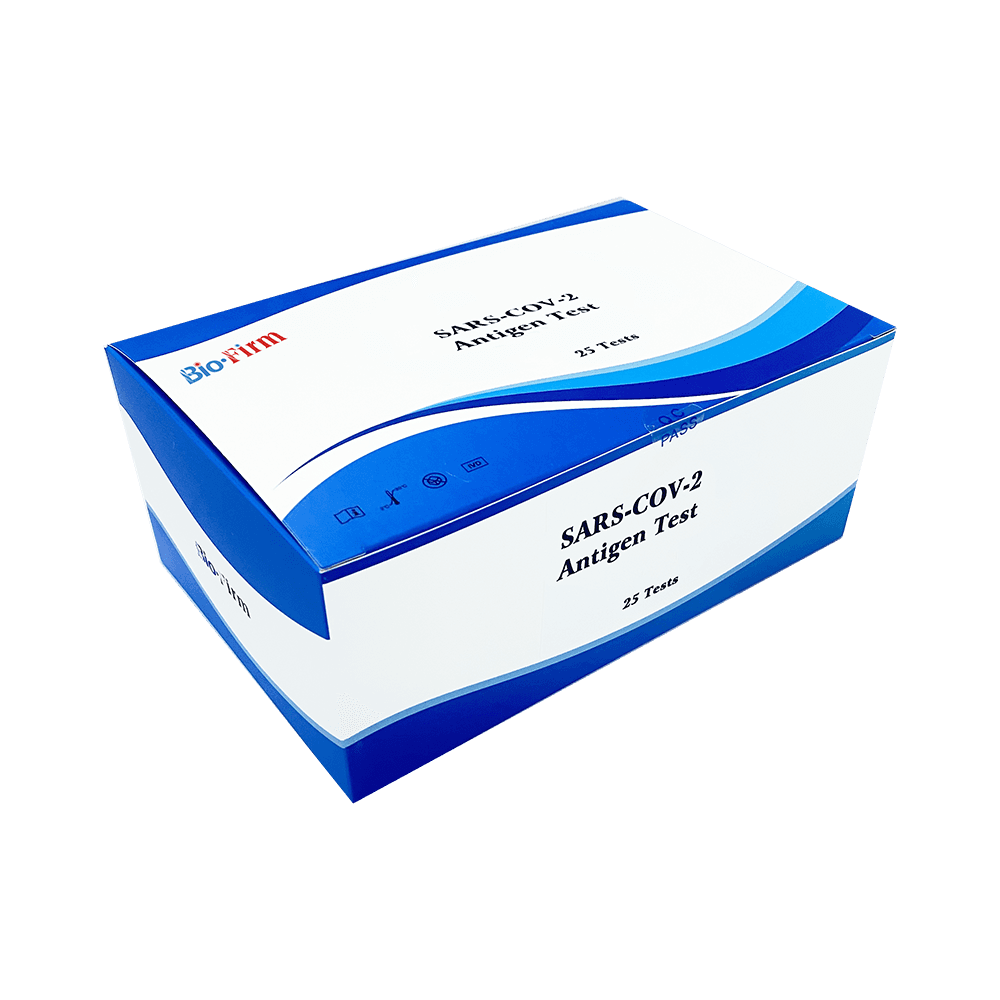Jul 01,2022
SARS-CoV-2 antigen test kits play a crucial role in the early detection of COVID-19 infections, especially in people who may be asymptomatic or have mild symptoms. Here’s how they contribute to early detection:
1. Rapid Detection of Viral Proteins
Antigen tests work by detecting specific proteins on the surface of the SARS-CoV-2 virus, known as antigens. These proteins are present in the respiratory tract of infected individuals. Since antigen tests are designed to detect these viral proteins, they can provide results much faster than traditional PCR tests (which detect the genetic material of the virus).
Fast Results: Unlike PCR tests, which can take hours or even days to process in a laboratory, antigen tests can produce results in 15-30 minutes. This rapid turnaround allows for immediate isolation of positive individuals, which is critical for controlling outbreaks.
High Sensitivity During Early Infection: Antigen tests are most accurate when the viral load (amount of virus present) is highest, typically in the early stages of infection, when an individual is most contagious. This makes antigen tests effective for detecting people who might not yet show severe symptoms but are still able to spread the virus.
2. Screening Asymptomatic Individuals
One of the most important aspects of antigen tests is their ability to detect infections in asymptomatic individuals, who may not show any signs of illness but can still spread the virus.
Asymptomatic Spread: Individuals who are asymptomatic or pre-symptomatic (before symptoms appear) can unknowingly transmit the virus to others. Antigen tests, when used as part of frequent screening, help identify such individuals early, reducing the chances of unknowingly spreading the virus to vulnerable populations.
Widespread Screening: Because antigen tests are inexpensive and easy to use, they can be deployed on a large scale in high-risk settings such as schools, workplaces, airports, and healthcare facilities. This enables frequent screening, which increases the chances of identifying infected individuals before they contribute to a wider outbreak.
3. Effective for High-Risk Settings
In high-density environments like schools, nursing homes, and public events, early detection of infections can be particularly impactful.
Monitoring Outbreaks: In settings where people are in close proximity to one another, such as classrooms or nursing homes, antigen tests help detect outbreaks early before they spread further. If an individual tests positive, they can be immediately isolated and further testing can be done to confirm the diagnosis and prevent additional cases.
Routine Testing Programs: Some institutions implement routine antigen testing to frequently screen employees or students, even if they aren’t showing symptoms. This helps catch infections before they lead to large-scale outbreaks.

4. Complementing PCR Testing
Antigen tests are often used in conjunction with PCR tests for more accurate results. While antigen tests are faster and cheaper, they are generally less sensitive than PCR tests, meaning they can produce false negatives (especially in cases where the viral load is low). However, when used as part of a broader testing strategy, they can still play an essential role in early detection.
Quick Screening Followed by Confirmation: If an individual tests positive on an antigen test, they can be immediately isolated, and a PCR test can be used to confirm the diagnosis. For negative antigen test results, individuals who are symptomatic or at higher risk may still undergo a PCR test for confirmation.
Serial Testing: In situations where false negatives are a concern, repeated antigen testing (serial testing) can help detect the virus early, even if it is not initially detected in a single test.
5. Ease of Use and Accessibility
Antigen tests are easy to administer, often requiring only a nasal or throat swab, and many are designed to be self-administered. This ease of use contributes to their effectiveness in early detection, especially in areas where access to healthcare facilities may be limited.
Self-Testing: Home testing kits allow individuals to test themselves regularly, increasing the likelihood of detecting infections early, especially in asymptomatic or mildly symptomatic individuals who might otherwise not seek testing.
Increased Accessibility: Because antigen tests are inexpensive and don’t require specialized equipment or trained personnel, they are more accessible to larger populations and can be implemented more widely in areas with limited healthcare resources.



 Español
Español
 Français
Français
 Deutsch
Deutsch
 عربى
عربى








